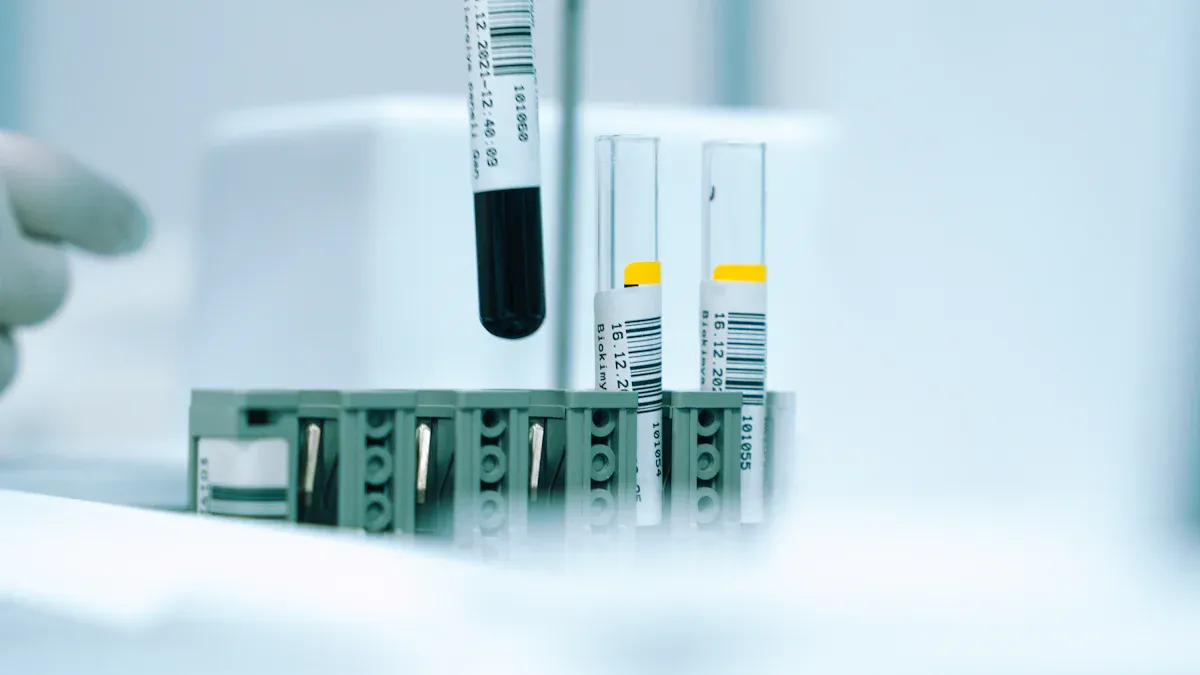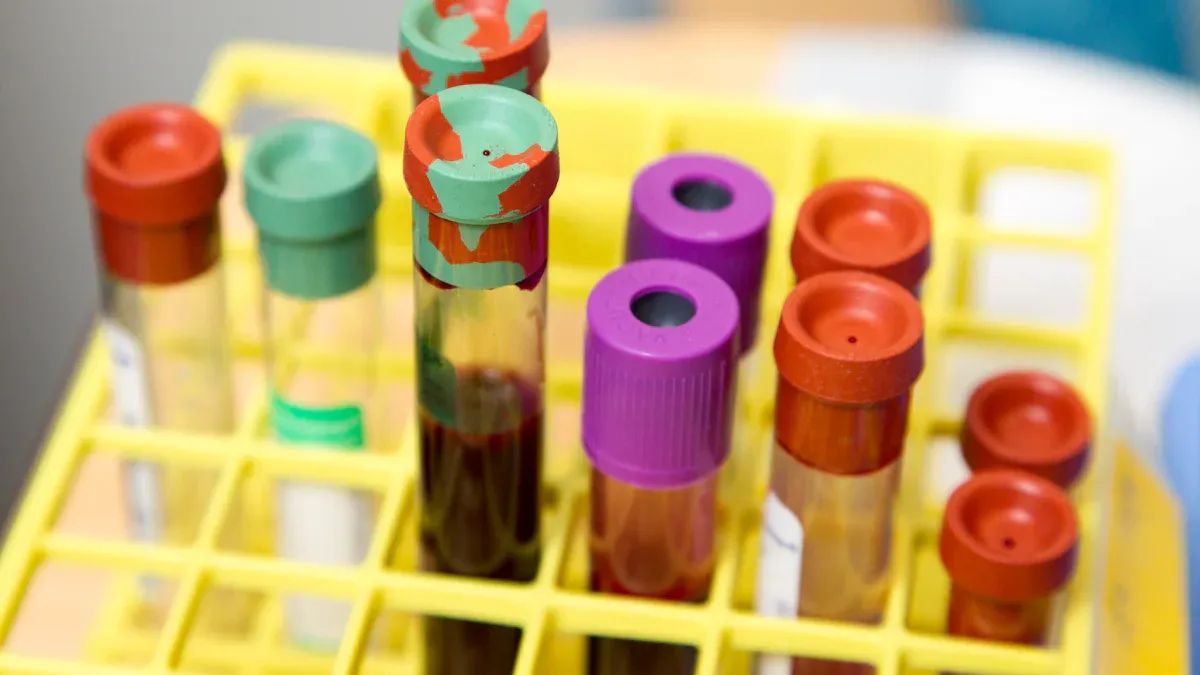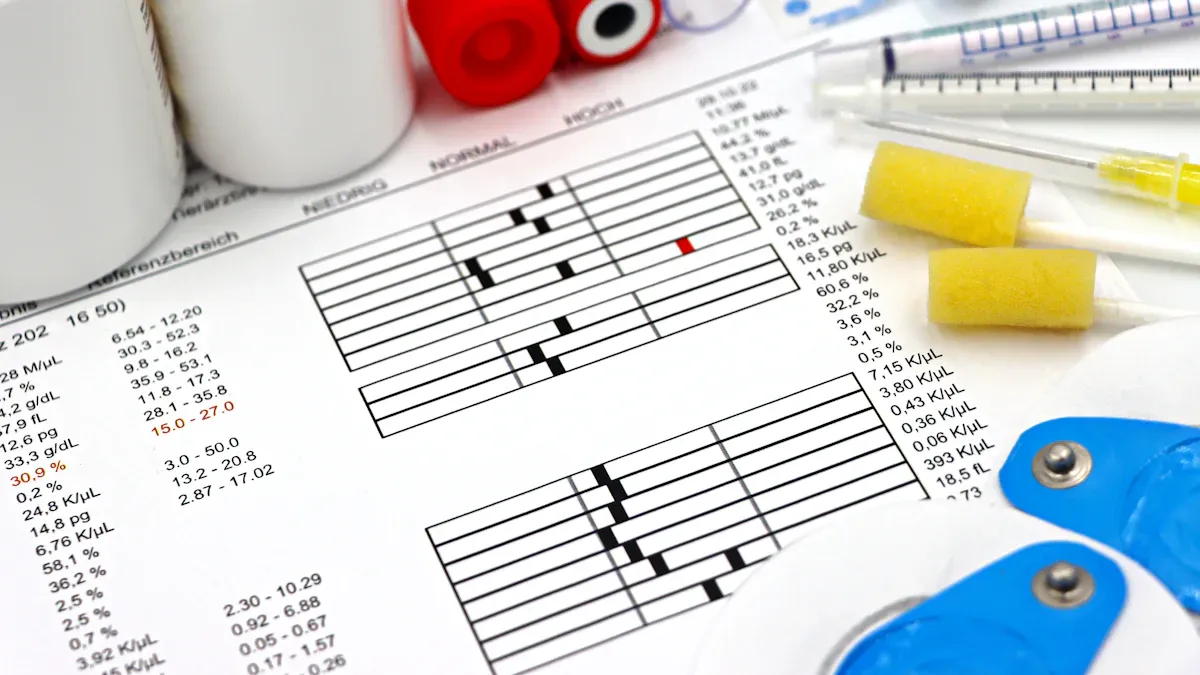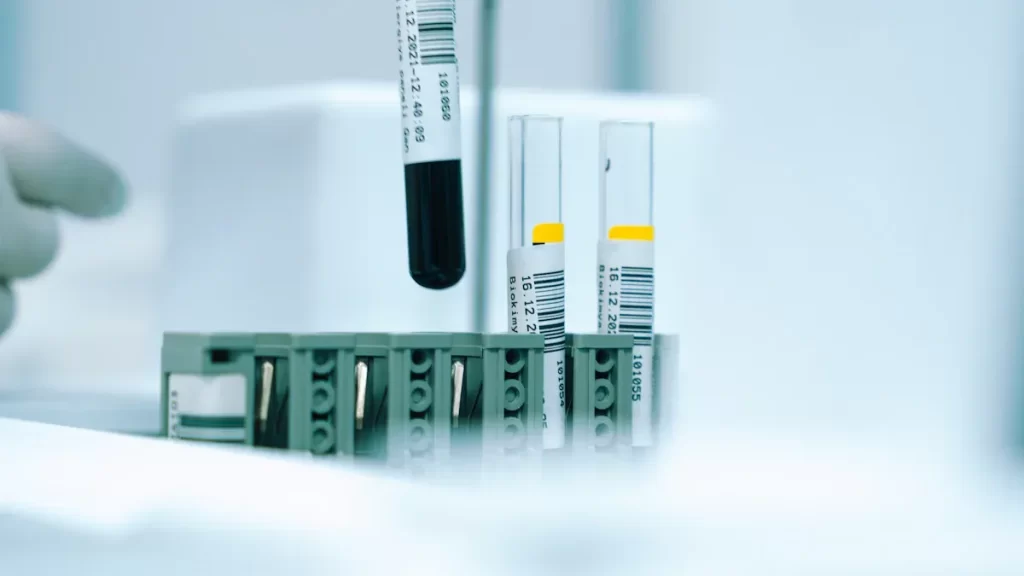News & Events
Everything About Cardiolipin Antibody IgM Interpretation in 2025

If you receive a cardiolipin antibody igm result in 2025, you might wonder what it means for your health. Most people test negative, with only about 2% showing a positive result. A positive cardiolipin igm antibody test does not always mean you face immediate risks. Recent studies show isolated IgM positivity rarely leads to blood clots or complications.
| Evidence Type | Findings |
|---|---|
| Meta-analyses | Isolated IgM positivity does not have clinical value for thrombosis. |
| Small cohort studies | Some suggest isolated IgM aCL/aβ2GPI may increase thrombosis risk. |
| 2023 ACR/EULAR APS CC | Differentiates clinical relevance of IgM isotypes, indicating need for further investigation. |
Understanding your cardiolipin igm antibody status helps you make informed decisions. Many people believe a negative result means no risk, but this is not always true. You will learn how to interpret your results and what steps to consider next.
Key Takeaways
- A positive cardiolipin IgM antibody test does not always indicate immediate health risks. Isolated IgM positivity rarely leads to blood clots.
- Understanding your cardiolipin IgM antibody status is crucial. It helps you make informed health decisions and understand potential risks.
- Testing for cardiolipin IgM antibodies is recommended if you have unexplained blood clots or recurrent miscarriages. Early detection can prevent serious complications.
- Positive results require confirmation through additional tests and clinical symptoms. A single positive test does not confirm a diagnosis of antiphospholipid syndrome.
- Stay updated on testing methods and guidelines. Discuss your results with your doctor to understand their significance and plan your next steps.
Cardiolipin Antibody IgM Overview
What Is Cardiolipin?
You find cardiolipin inside your cells, especially in the mitochondria. This molecule helps your cells make energy. Cardiolipin makes up about 15–20% of the phospholipids in the inner mitochondrial membrane. When cardiolipin changes, your mitochondria may not work well. This can affect how your body produces energy.
Cardiolipin (CL) is the signature phospholipid of energy-transducing membranes, including the IMM, where it constitutes approximately 15–20% of the total mitochondrial phospholipids. Accumulating evidence suggests that CL plays a central role in several reactions and processes of the mitochondrial metabolism, including respiration and energy production.
It is conceivable that alterations occurring in the CL profile may negatively impact the activity of a variety of mitochondrial proteins and enzymes, including the ETC and OXPHOS complexes, thus compromising mitochondrial function and dynamics.
Cardiolipin IgM Antibody Explained
Your immune system sometimes makes antibodies against your own molecules. When you have an igm antibody that targets cardiolipin, it means your body sees cardiolipin as a threat. This autoantibody targeting cardiolipin is called a cardiolipin igm antibody. Doctors use tests to find these cardiolipin antibodies in your blood. The igm type is one of the first antibodies your body makes when it reacts to something new. If you have low levels of cardiolipin igm antibody, your risk for heart disease may go up. High levels can protect you, especially if you are male.
| IgM aOxCL Level | Risk of CVD | Notes |
|---|---|---|
| Low (below lowest quartile) | Almost 2-fold increased risk | Independent of other risk factors |
| High (above 86th percentile) | More than 50% reduction in risk | Strong protective effect, especially in men |
| Men with low levels | 2.5-fold increased risk of MI | Significant association with CVD development |
| Women with low levels | 2-fold increased risk of MI | Notable association as well |
Associated Conditions
You may hear about cardiolipin antibody syndrome when doctors talk about positive cardiolipin igm antibody results. These antibodies link to several health problems. The most common is antiphospholipid syndrome. You may also see them in autoimmune diseases. Cardiolipin antibodies can show up in people with unexplained blood clots or repeated miscarriages.
| Medical Condition |
|---|
| Antiphospholipid Syndrome (APS) |
| Systemic Lupus Erythematosus (SLE) |
| Unexplained thrombotic events |
| Repeated Miscarriages |
- A significant positivity for igm aPS/PT was found in asymptomatic patients (81.8%).
- A strong correlation between lupus anticoagulant and aPS/PT igm antibodies was observed.
- Igm positivity is associated with pregnancy problems in patients with antiphospholipid syndrome.
- Isolated igm is rare in thrombotic APS but more frequent in obstetric APS, with rates from 3.5% to 12.3%.
- In studies, igm positivity links to pregnancy issues but not directly to blood clots.
You should know that having cardiolipin igm antibody does not always mean you will get cardiolipin antibody syndrome. Doctors look at your symptoms and other test results before making a diagnosis.
Testing for Cardiolipin IgM Antibodies

When Is Testing Recommended?
You might need testing for cardiolipin igm antibodies if you show certain symptoms or have specific risk factors. Doctors often recommend this test when you have unexplained blood clots or repeated miscarriages. You may also need testing if you have a prolonged clotting test result, such as an abnormal PTT. Some symptoms that prompt testing include:
- Unexplained blood clots (thrombotic episodes)
- Recurrent miscarriages
- Prolonged clotting test results
- Leg pain, swelling, or discoloration (possible deep vein thrombosis)
- Sudden shortness of breath, coughing blood, chest pain, or rapid heart rate (possible pulmonary embolism)
Doctors also order this test if you have signs of autoimmune disorders. Testing for cardiolipin igm antibodies helps diagnose conditions like antiphospholipid syndrome and sometimes systemic lupus erythematosus. Detecting cardiolipin igm antibodies early can help prevent serious complications.
Testing Methods (ELISA, RIA)
You will find two main methods for testing: enzyme-linked immunosorbent assay and radioimmunoassay. Most labs use the enzyme-linked immunosorbent assay because it is simple and widely available. Some labs use radioimmunoassay for more detailed analysis. The accuracy and reliability of these methods can vary. The table below shows how well these methods agree:
| Method Comparison | Cohen’s Kappa | Agreement Level |
|---|---|---|
| ELISA vs RIA | < 0.60 | Low |
| aß2GPI IgG | 0.75 | Moderate |
| aß2GPI IgM | 0.76 | Improved |
| Overall Cohort | < 0.60 | Low |
| APS Cohort | 0.76 vs 0.43 | Improved |
You should know that results may differ depending on the method used. Your doctor may suggest retesting if results are unclear or if your symptoms change.
Preparing for Testing
You do not need to fast before testing for cardiolipin igm antibodies. The process involves a simple blood draw. The lab staff will collect your blood and handle it carefully to ensure accurate results. Here is a typical protocol for preparing samples:
| Step | Sodium Citrate Plasma | Serum |
|---|---|---|
| 1 | Collect and label sample according to standard protocols. Fill sodium citrate tube to the fill line. | Collect and label sample according to standard protocols. |
| 2 | Gently invert tube 5 times immediately after draw. DO NOT SHAKE. | Gently invert tube 5 times immediately after draw. DO NOT SHAKE. |
| 3 | Centrifuge for 10 minutes. | Allow blood to clot for 30 minutes, then centrifuge for 10 minutes. |
| 4 | Immediately aliquot sodium citrate plasma into transport tube labeled as “NaCit Plasma” and cap tightly. Discard original tube. | N/A |
Sometimes, your doctor may ask for retesting. This can happen if your first test is borderline or if you develop new symptoms. Retesting helps confirm the diagnosis and guides your treatment plan.
Cardiolipin Antibody IgM Result Interpretation

Positive Results
You may feel concerned when you see a positive cardiolipin igm antibody result. This result means your blood contains cardiolipin antibodies that target cardiolipin molecules. Doctors often use the anticardiolipin test to help diagnose antiphospholipid syndrome. A positive result does not always mean you have this syndrome. You need to consider your symptoms and other test results. If you have a history of blood clots or pregnancy complications, a positive cardiolipin igm antibody result may show an increased risk of thrombotic events. The risk of thrombosis rises when you have both positive cardiolipin antibodies and clinical signs like deep vein thrombosis or fetal loss.
A positive cardiolipin igm antibody result must be confirmed on two occasions, at least 12 weeks apart, to support a diagnosis of antiphospholipid syndrome. The presence of moderate or high levels (greater than 40 MPL units) is a key criterion for diagnosis.
You may see positive results in other conditions, such as infections or autoimmune diseases. The anticardiolipin test can show low positive results that do not always have clinical significance. Doctors often order additional tests, such as lupus anticoagulant testing and beta-2 glycoprotein I antibodies, to clarify the diagnosis.
| Evidence Type | Description |
|---|---|
| Positive Result | You need clinical symptoms, such as thrombosis or pregnancy complications, to support a diagnosis of antiphospholipid syndrome. |
| Specificity | IgM antibodies can appear in many conditions, so positive results alone do not confirm APS. |
| Testing Frequency | You need two positive results, at least 12 weeks apart, for a valid diagnosis. |
Negative Results
A negative cardiolipin igm antibody result means your blood does not show detectable levels of cardiolipin antibodies. You may feel relieved, but a negative result does not always rule out the risk of thrombosis or other clinical problems. Some people with antiphospholipid syndrome have negative anticardiolipin test results but positive results for other antiphospholipid antibodies. Doctors may order more tests, such as lupus anticoagulant or beta-2 glycoprotein I antibody tests, to complete your clinical evaluation.
You should remember that the anticardiolipin test is only one part of the diagnosis. Your doctor will look at your symptoms, medical history, and other laboratory results. If you have signs of blood clots or pregnancy complications, further testing may be needed even if your cardiolipin igm antibody result is negative.
Borderline Results
You may receive a borderline cardiolipin igm antibody result. This means your antibody level is close to the cutoff value for positivity. Borderline results often cause confusion. These results may reflect transient antibodies that do not have clinical significance. Doctors recommend retesting after 8–12 weeks to confirm the presence of cardiolipin antibodies.
| Recommendation | Details |
|---|---|
| Retesting | You should repeat the anticardiolipin test after 8–12 weeks to confirm the result. |
| Interpretation | Borderline results may indicate temporary antibodies, which are usually not clinically significant. |
| Clinical Context | You need to interpret positive results with your symptoms and other clinical findings. |
You should not worry if you see a borderline result. Many people have temporary increases in cardiolipin antibodies due to infections or other short-term conditions. Your doctor will help you decide if further testing is needed.
Next Steps
After you receive your cardiolipin igm antibody result, you need to take several steps. You should discuss your result with your doctor. Your doctor may order more tests to clarify the significance of your result. Common follow-up tests include:
- Cardiolipin IgG and IgA antibodies
- Lupus anticoagulant testing
- Beta-2 glycoprotein I antibodies (IgG, IgM, IgA)
- Complete blood count (CBC) with differential
- Prothrombin time (PT) and partial thromboplastin time (PTT)
- ANA (antinuclear antibodies)
You may need to repeat the anticardiolipin test if your result is borderline or if your symptoms change. Doctors use these tests to evaluate your risk of thrombosis and to guide your treatment plan. If you have moderate or high levels of cardiolipin igm antibody, your doctor will check for persistence by repeating the test after 12 weeks. The diagnosis of antiphospholipid syndrome requires both clinical symptoms and persistent positive results.
Interpreting cardiolipin igm antibody results can be challenging. The anticardiolipin test has variable performance, and the relationship between results and clinical outcomes is not always clear. You need to consider your symptoms, medical history, and other laboratory findings. The role of igm antibodies in antiphospholipid syndrome remains uncertain, especially in women with pregnancy complications.
You should stay informed about advances in cardiolipin antibody igm testing and guidelines. Your doctor will help you understand the significance of your result and recommend the best course of action. If you have symptoms of blood clots or pregnancy complications, prompt clinical evaluation is important. You may need to see a specialist for further management.
You learned that cardiolipin IgM antibody testing helps diagnose conditions like antiphospholipid syndrome and lupus. Recent research shows new thresholds and testing methods improve accuracy. You should always discuss your results with your doctor to make informed decisions.
- Updated guidelines use solid-phase methods and new reference ranges for better consistency.
- High levels of cardiolipin antibodies link to pregnancy risks and blood clotting problems.
Stay informed about advances in testing technology and clinical guidelines to protect your health.
FAQ
What does a positive cardiolipin IgM antibody test mean?
A positive result shows your immune system made antibodies against cardiolipin. This does not always mean you have a disease. Your doctor will check your symptoms and may repeat the test to confirm.
Can infections cause a temporary rise in cardiolipin IgM antibodies?
Yes. Infections like hepatitis, HIV, or even the flu can cause a short-term increase. Your antibody levels often return to normal after you recover.
How often should you repeat the cardiolipin IgM antibody test?
Doctors recommend repeating the test after 12 weeks if you get a positive or borderline result. This helps confirm if the antibodies are still present.
Do you need to fast before the cardiolipin IgM antibody test?
No fasting is needed. You can eat and drink as usual before your blood draw.
What other tests might your doctor order with a cardiolipin IgM antibody test?
Your doctor may order lupus anticoagulant, beta-2 glycoprotein I antibodies, or a complete blood count. These tests help give a full picture of your health.

